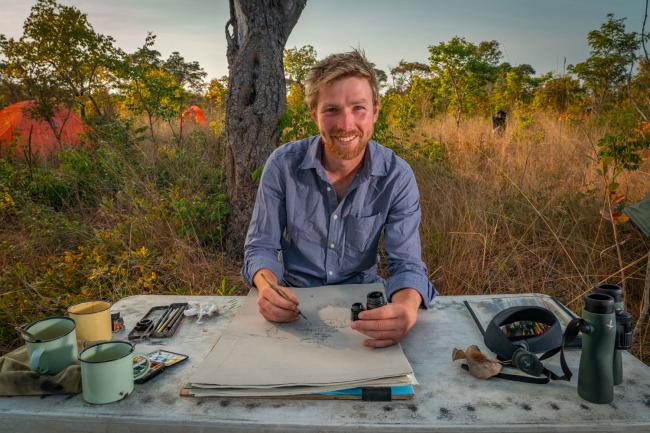
Special project collection: Paths to Refuge
The New Berliners
Navigating Life After Syria

You need an active subscription to view this content
You should really subscribe now!
Or login if you already have a subscription.
Issue: Spring 2017 / Volume 93/2
Published: April 3, 2017
Alex Potter is a photographer based in the Middle East and the Midwest. In 2012, she was selected as a Rotary Ambassadorial Scholar to Lebanon. She is a recipient of a Chris Hondros Student Fellowship, as well as a Lucie Foundation Emerging Scholarship from 2012–2014. Her work has been recognized by...
George Butler is an award-winning illustrator who reports on the ground from conflict zones, climate hot spots, and humanitarian crises. He is the author of Drawn Across Borders (Candlewick Studio, 2021). Butler’s Fall 2022 story for VQR, “Drawn to War,” was the recipient of the 2023 National Magazine Award for...



